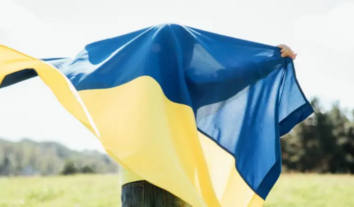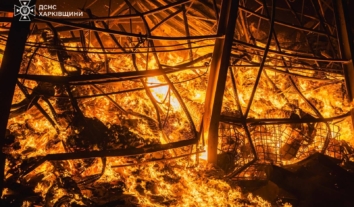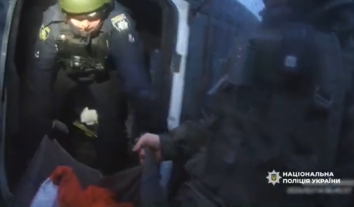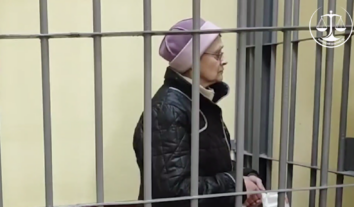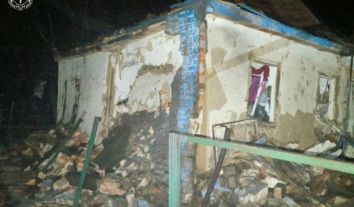International human rights activists to oppose withdrawal by South Africa from the Rome Statute
African and international civil society groups will strongly oppose any withdrawal by South Africa from the Rome Statute of International Criminal Court (ICC) to protect decades of democracy, justice, and human and victims’ rights advances in the country, said the Coalition for the ICC.
On 19 October 2016, the United Nations treaty office confirmed receipt of South Africa’s notification of its intention to withdraw from the Rome Statute, the founding treaty of the world’s permanent International Criminal Court. Withdrawal will take one year to come into effect. However, civil society organizations and opposition political groups have indicated that they will challenge the move in South African courts as unconstitutional.
“With its history of injustice, South Africa under Nelson Mandela was a driving force behind the establishment of the ICC. Any withdrawal from the Rome Statute would reverse years of human rights progress. Opposition to the ICC has grown as it has implemented its role, mandated by 124 countries, to bring those most responsible for grave crimes – including high government officials – to justice,” said William R. Pace, convenor of the Coalition for the ICC. “Victims across Africa have called for justice time and again, either through national judicial systems or, when they fail, through the ICC. The Zuma government is demonstrating a terrible disregard for victims and the powerless in South Africa, throughout Africa and the world.”
“The ICC remains an important pillar of international criminal justice and South Africa’s withdrawal from the only permanent international criminal court signals unfortunate disregard for human rights and the fight against impunity,” said Kaajal Ramjathan-Keogh, Southern Africa Litigation Centre executive director.
“South Africa must continue to play the role of promoting international criminal justice and to reform the court: not abandon it,” said Anton Du Plessis, executive director at the Institute for Security Studies. “South Africa’s decision to withdraw was not approved by Parliament. Legally, ratifying a treaty has to happen through Parliamentary processes. It logically follows that withdrawal would require the same.”
“South Africa’s sudden notice to withdraw from the ICC is deeply disappointing. In making this move, the country is betraying millions of victims of the gravest human rights violations and undermining the international justice system,” said Netsanet Belay, Amnesty International’s research and advocacy director for Africa.
In an annexed declaratory statement, South Africa said that being part of the ICC compromises its efforts to promote peace and security on the African continent, in particular citing what it described as “fundamental differences” between the African continent and many ICC member states on the issue of head-of-state immunity. Rome Statute Article 27 prohibits immunities for heads-of-state and senior government officials.
The issue of immunity for sitting heads-of-state and high government officials is at the heart of current challenges. While immunity for sitting heads of state has been a challenge encountered in some domestic jurisdictions, it has never been available before international or regional criminal courts dealing with grave crimes. No immunity is a cornerstone of the Rome Statute system of international justice.
South Africa has also indicated that it will move to revoke the country’s act implementing the Rome Statute into national law that provides for domestic prosecutions of grave crimes.
“While South Africa claims its AU obligations vis-a-vis immunity conflict with its Rome Statute obligations, the country itself passed a 2002 law incorporating not only Rome Statute definitions of crimes against humanity, war crimes, and genocide, but also provisions for cooperation with the ICC and prohibitions on any type of immunity,” continued Lamony.
Failure to arrest ICC fugitive Omar al-Bashir
In 2015, Pretoria’s high court found that the government had failed in its obligation as an ICC member state to arrest Sudanese President Omar al-Bashir while he visited the country in June 2015 to attend an AU summit. Al-Bashir is wanted by the ICC for alleged war crimes, crimes against humanity, and genocide in Darfur. South Africa’s Constitutional Court is due to rule on a government appeal next month.
“We hope this is not a political move, considering the implications of the upcoming Constitutional Court hearing in November on the al-Bashir matter,” continued Du Plessis.
Anti-ICC campaign
The African heads of government anti-ICC campaign began after the ICC issued arrest warrants in 2009 for Omar al-Bashir, the president of Sudan, a country that is not an ICC member state. It increased significantly after the ICC prosecutor brought cases against Kenyan politicians Uhuru Kenyatta and William Ruto in 2011, who would go on to become Kenya’s president and deputy, respectively.
The AU had recommended that its Open-Ended Committee of African Ministers on the ICC consider a roadmap on possible withdrawal. But until now, no African state has withdrawn from the Rome Statute. In 2016, Burundi’s parliament voted to begin the process of doing so but has yet to formally notify the UN treaty office. Civil society, African parliamentarians, United Nations representatives, and government officials all expressed alarm at the move in a country facing a serious violent and political crisis.
Yet there is no consensus among African governments to leave the ICC. A 2016 AU meeting saw several states oppose a motion for withdrawal en masse. A decision to withdraw from the Rome Statute is up to individual ICC member states, not the AU. Meanwhile, many African ICC member states have amended their constitutions in line with the Rome Statute to ensure domestic accountability for war crimes, crimes against humanity, and genocide.
In October 2016, Gabon asked for ICC assistance with crimes committed in the context of electoral violence.
***
The ICC is the world’s first permanent international court to have jurisdiction over war crimes, crimes against humanity, and genocide. Central to the Court’s mandate is the principle of complementarity, which holds that the Court will only intervene if national legal systems are unable or unwilling to investigate and prosecute perpetrators of genocide, crimes against humanity and war crimes.
There are currently ten active investigations before the ICC: the Central African Republic I & II; Democratic Republic of Congo; Darfur, Sudan; Kenya; Libya; Uganda; Côte d’Ivoire; Mali and Georgia. The ICC has publicly issued 33 arrest warrants and nine summonses to appear. Four trials are ongoing. There have been two convictions and one acquittal.
The Coalition for the International Criminal Court is a global network of civil society organizations in 150 countries fighting for justice to victims of war crimes, crimes against humanity and genocide through national courts and the international Criminal Court. www.coalitionfortheicc.org

